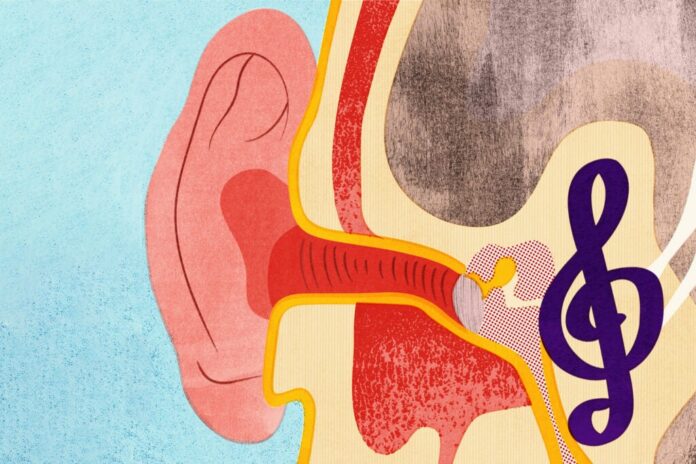
By Colleen Walsh
The Harvard Gazette
Wondering is a series of random questions answered by Harvard experts. For the second installment, we asked David Silbersweig — Stanley Cobb Professor of Psychiatry at the Medical School, co-director of the Center for the Neurosciences at Brigham and Women’s Hospital, and co-author of a 2018 paper on the neurobiological effects of music — why certain songs lodge in our heads.
Some surveys have found that 90 percent of people experience this phenomenon, and for about a third of them, it’s annoying. It’s known as an earworm, and it comes from the German Ohrwurm, meaning a musical itch. It was coined in 1979 by the psychiatrist Cornelius Eckert, and basically, it’s a looped segment of music that’s usually about 20 seconds long and automatically comes into your awareness and keeps playing on repeat. There are certain musical characteristics that make songs more likely to become earworms, such as if the piece is repetitive, if there is a longer duration of certain notes, if intervals between the notes are smaller. Also, songs that trigger some kind of emotional charge, either consciously or not, or songs associated with a particular memory, can often be the ones that get stuck in your head.
Studies using functional magnetic resonance imaging have looked at the structure of the brain, and the results make sense in terms of the processes described above. There’s involvement of the auditory cortex in the temporal lobe of the brain that supports musical perception, and connections between that cortex and deep temporal-lobe areas, like the hippocampus or parahippocampal gyrus, that are important in memory encoding and retrieval. The phonological loop has been implicated — the process of holding something in your mind, like a mental scratchpad, for a certain number of seconds. So there are networks in the brain that support these functions of music — and memory, and attention, and keeping something in your head, and working memory. And then there’s the connection to the emotional regions of the brain, like the amygdala, which is involved in salience and negative emotion, and the ventral striatum, or nucleus accumbens, which is involved with positive emotion and reward. These are all elements that are thought to be involved in earworms.
What happens is that connections in our brains involving these regions get “stuck,” resulting in an automatic playing out of musical memories. Some research suggests that people who have difficulty with working memory, like those suffering from attention-deficit disorder, may experience earworms less, while people with obsessive-compulsive disorder, where there are these loops that play over involuntarily in their heads, may be more prone to earworms.
It’s also important to remember that music is universal across all cultures. Music, including some pre-verbal or simple aspects of it, is involved in our prehistory and our evolution in terms of things like changes of pitch that are necessary for communicating emotion, or just communicating in general. And music was used together with rhyming before the written word in many cultures to help people remember oral histories. Our brains evolved to remember these associations and these snippets.
To get rid of an earworm you can try distraction, engaging in another thing that will require the use of some of these brain regions and circuits and functions so that you’re taking them literally in another direction. Others advocate more of a mindfulness approach —just let it play out and try not to focus on it too much. And then some suggest playing actual music, because you can replace what has been stuck in your head with something else.
— As told to Colleen Walsh, Harvard Staff Writer.
(Reprinted with permission from the Harvard Gazette.)













